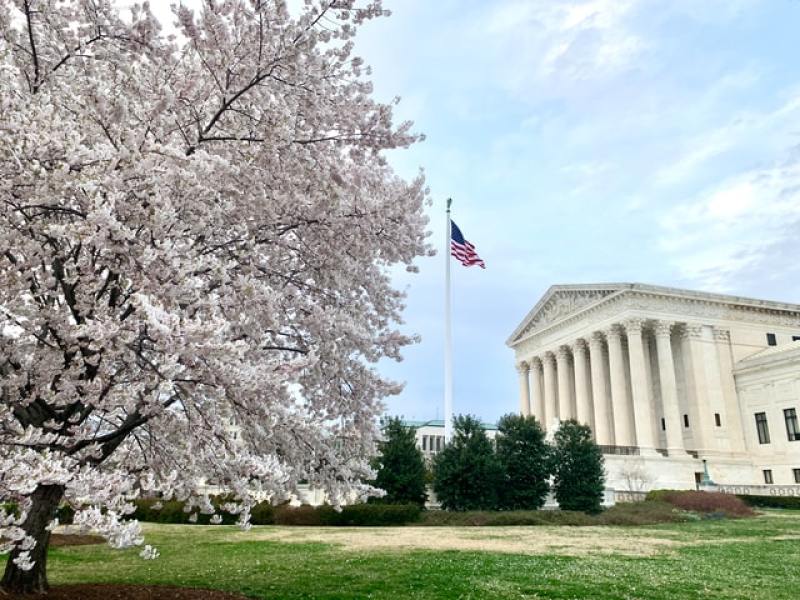
The United States Supreme.Court upheld on Thursday Arizona's law on voting restrictions to ensure "integrity of elections."
CBN News said that the Supreme Court has upheld Arizona's controversial voting law that include two rules meant to restrict the incidence of fraud and to ensure the integrity of elections.
In a vote of 6-3, the Supreme Court upheld the Arizona rule on "ballot harvesting" and provisional ballots that are part of the 1965 Voting Rights Act. Supreme Court Justice Samuel Alito, who wrote the majority ruling, explained that the state's enforcement of the rulings were not a violation of the Act and justifiably serve the interest of the state on election integrity. The grounds of inconvenience that the state's restrictions bring are not also basis to make it a burden on voters.
"Fraud can affect the outcome of a close election, and fraudulent votes dilute the right of citizens to cast ballots that carry appropriate weight. Fraud can also undermine public confidence in the fairness of elections and the perceived legitimacy of the announced outcome. Ensuring that every vote is cast freely, without intimidation or undue influence, is also a valid and important state interest," Alito pointed out in the ruling.
"Every voting rule imposes a burden of some sort. Voting takes time and, for almost everyone, some travel, even if only to a nearby mailbox," he added. "Casting a vote, whether by following the directions for using a voting machine or completing a paper ballot, requires compliance with certain rules."
According to the ruling, voting in the state is easy where voters have the option to vote in person in their assigned precinct, their county, or through mail-in ballots. The state then imposed that votes of those who voted in their precinct but did not use their recorded address will not be counted. While House Bill 2023 makes it a criminal offense for anyone collecting an early mail-in ballot aside from those it itemized as authorized to do so.
These rulings were then contested by the Democratic National Committee in the District Court as "discriminatory rulings against Section 2 of the 1965 Voting Rights Act and the United States Constitution's Fifth Amendment. The Committee alleged that "the State's refusal to count ballots cast in the wrong precinct and its ballot-collection restriction had an adverse and disparate effect on the State's American Indian, Hispanic, and African-American citizens."
The District Court ruled against the allegations of the DNC stating that there was no discrimination done since such was not the intention of the state and the minority voters had the option to select their representatives. The Committee then appealed the matter to the U.S. Ninth Circuit Court before it was brought to the level of the Supreme Court for "certiorari" or review, especially since the Circuit Court was divided in its ruling.
As per the Supreme Court, the Circuit Court initially decided that the state's restrictions "imposed a disparate burden on minority voters because they were more likely to be adversely affected by those rules." But then the Circuit Court eventually came out with an en banc decision that upheld the District Court was erroneous in stating that there was no "discriminatory intent" in the state's enactment of the ballot collection restriction.
In line with the Supreme Court's decision, CBN News highlighted that Arizona Attorney General Mark Brnovich applauded the decision as a "win" on election integrity for the state. He stressed that the "cornerstone of the republic" is fair elections and this begins with safeguarding the right to vote.
"Today is a win for election integrity safeguards in Arizona and across the country. Fair elections are the cornerstone of our republic, and they start with rational laws that protect both the right to vote and the accuracy of the results," Brnovich said.
What a day for #ElectionIntegrity in America today. I'll be discussing the #SCOTUS decision in
























